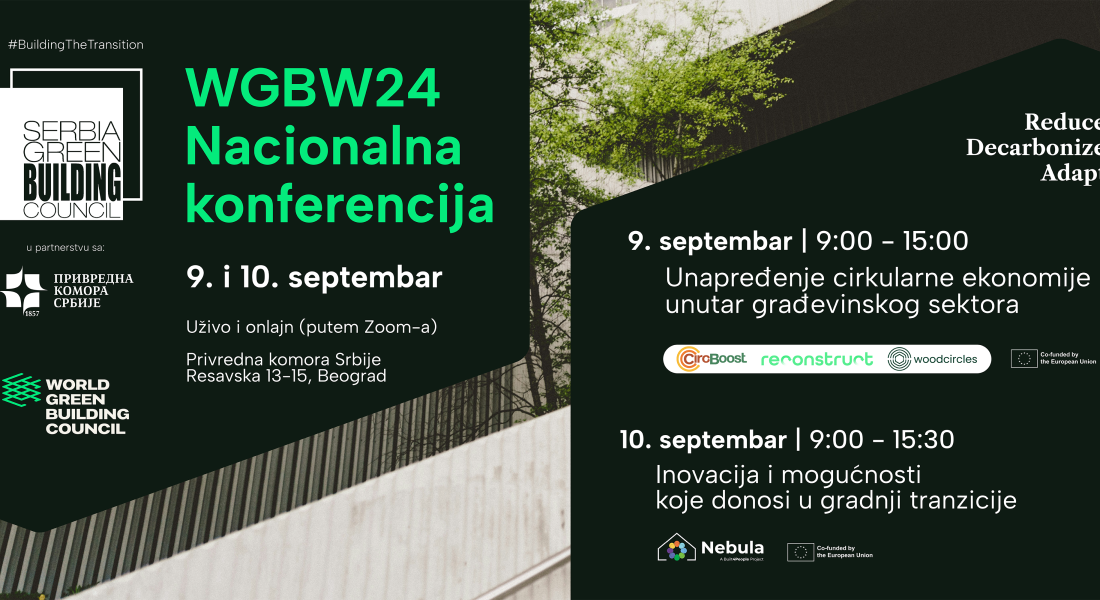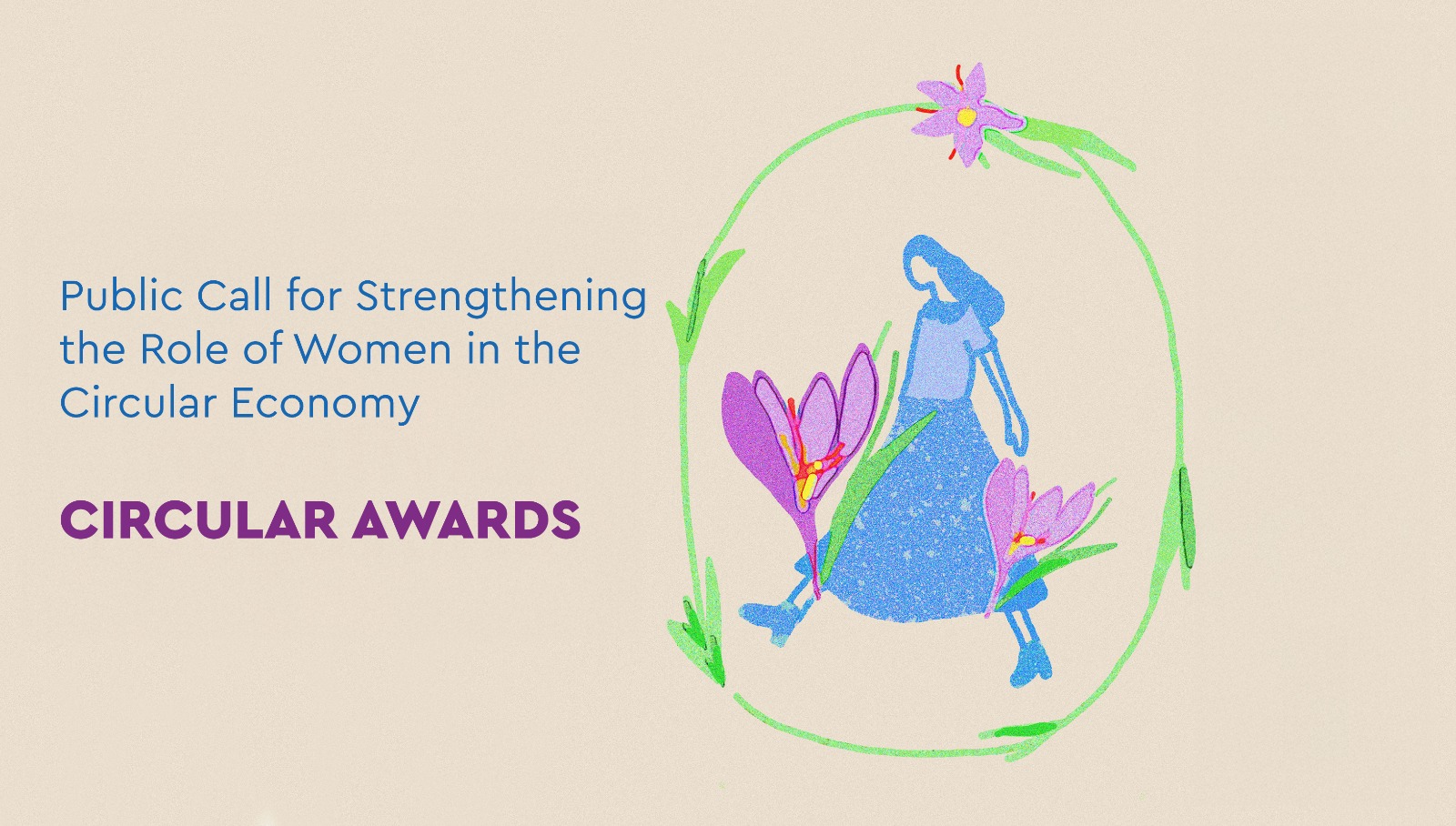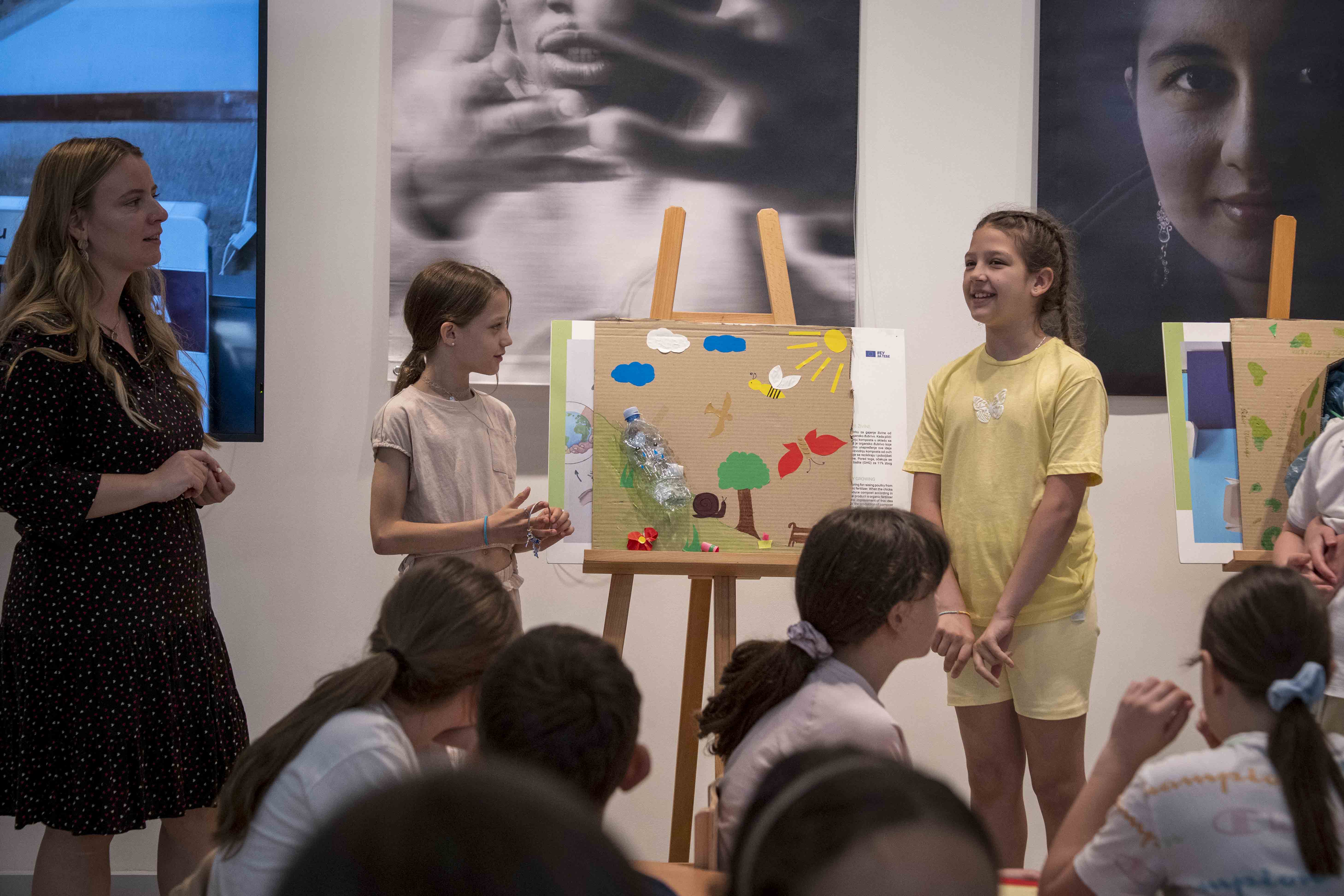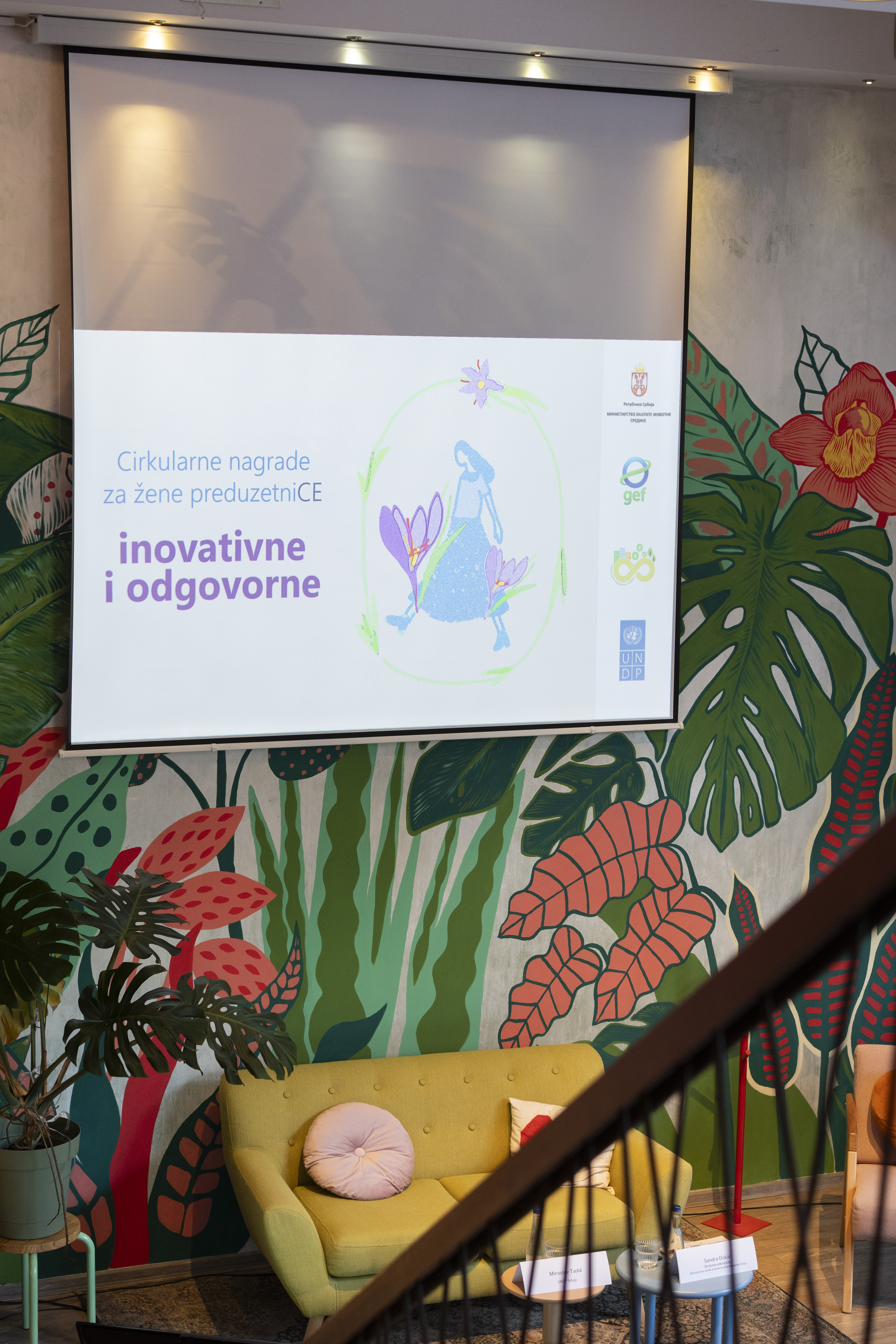As part of World Green Building Week – WGBW24, the Serbia Green Building Council, in partnership with the Chamber of Commerce and Industry of Serbia, organized a two-day national conference.
This year’s WGBW24 is dedicated to #BuildingTheTransition, calling on all relevant stakeholders to take action by following three key steps toward a better future: reduction, decarbonization, and adaptation. These three principles are at the forefront of the transition toward a more sustainable built environment.
To enable the inevitable changes ahead, it is essential to establish a supportive regulatory, financial, and market framework that will foster the development of healthier and more sustainable spaces for all—everywhere.
The panel dedicated to innovations and the built environment featured: Ana Mitić Radulović, Circular Economy Analyst (UNDP Serbia); Julie Emmrich (WorldGBC); Vladimir Nedeljković (Serbia GBC / NEBULA project); Davide Guariento (Association of Balkan Eco Innovations); Nenad Paunović (Office of the President of the National Assembly); and Milena Kostadinović (Innovation Fund). The panel was moderated by Zorana Petojević from Serbia GBC.
Ana Mitić Radulović emphasized that UNDP supports circular innovations in the construction sector. She highlighted the implementation of the “Circular Communities in Serbia” and “EU for the Green Agenda in Serbia” projects, through which over 75 ideas in the field of circular innovation have been supported—10–15% of which are related to the construction sector. The total value of support exceeds USD 3 million, while the overall triggered investments are estimated at around USD 25 million.
She also underscored the importance of influencing the strategic and legal framework, and shared some of the progress made to date. For instance, the use of waste for research and development purposes is now allowed without the need for a waste management permit, and end-of-waste status can be registered for new waste streams such as plastic and rubber granules, and ash. In the previous period, the Guidelines for Construction and Demolition Waste Management were presented, along with a Methodology for planning mobile facilities across Serbian regions for managing this type of waste.
Throughout the conference, the effects of the three core principles of the sustainability transition were showcased through a series of discussions, educational sessions, examples of good practice, and knowledge exchange.



